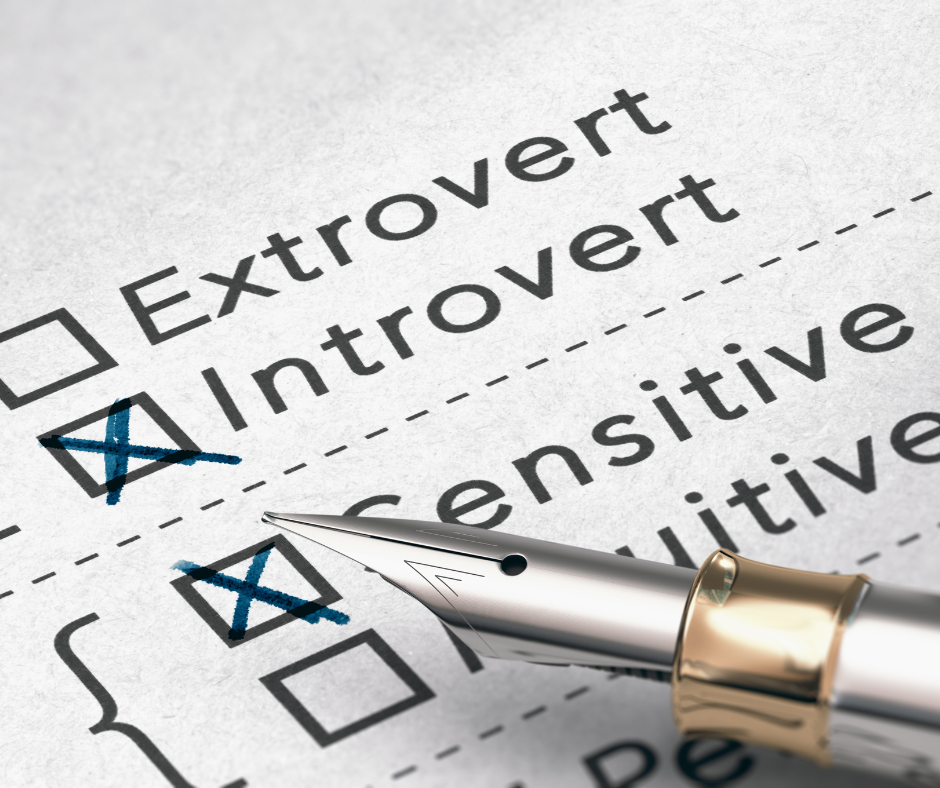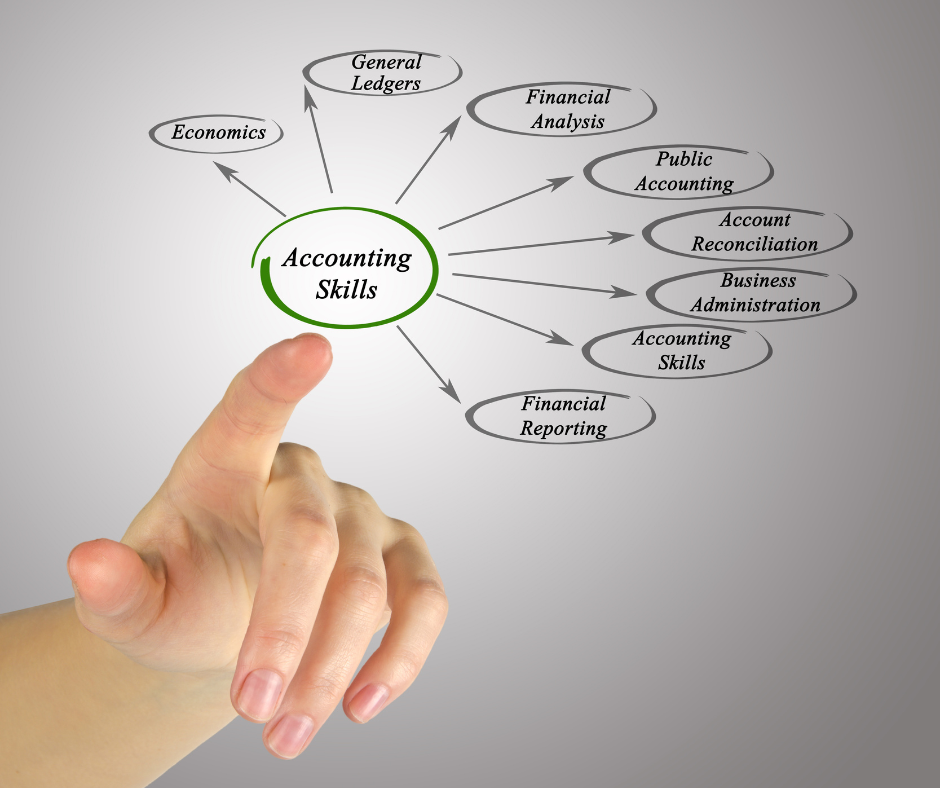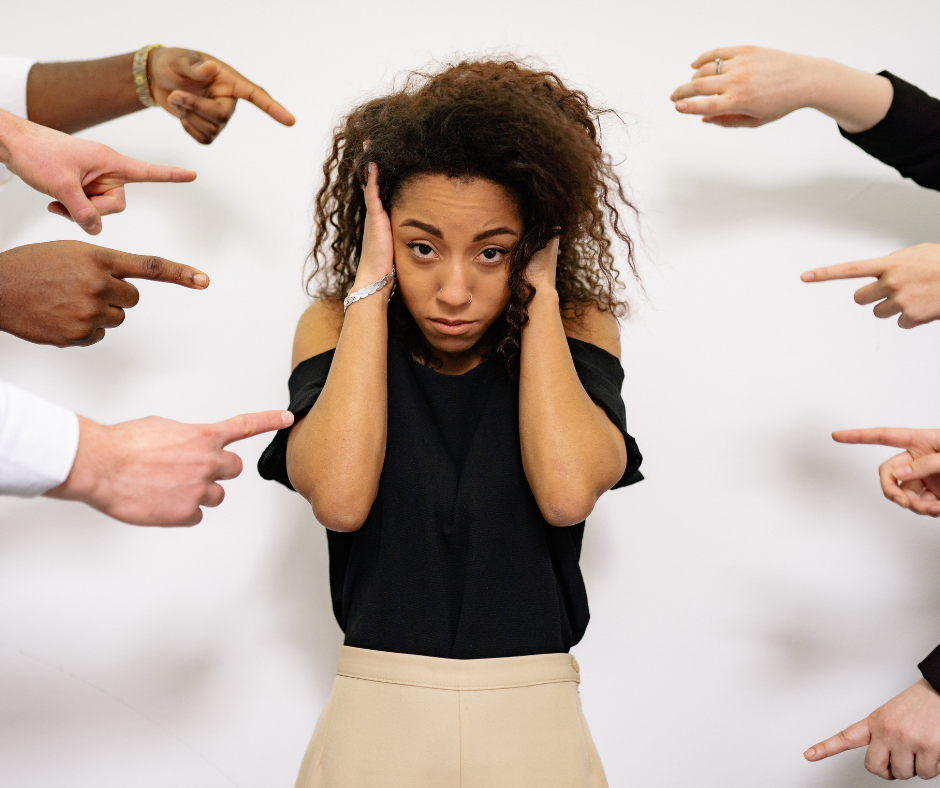As accountants, we are smart people doing smart things. But when was the last time you really assessed how effective you are?
You might be juggling the demands of your accounting career and managing your personal life, but is the life you’re living the balanced, successful, and happy one you dream of? If you’re being completely honest, I’m going to bet the answer is no.
That’s why I think it’s time for us all to take a look at our personal and professional effectiveness.
The question is, what’s the importance of effectiveness? Well, imagine if your job was like a puzzle, and being effective was the key to solving it. Being effective means not just doing things, but doing them in the smartest, easiest, and efficient way possible.
It’s about achieving the results you want without feeling overwhelmed or burnt out – like finding the perfect solution to that tricky puzzle. The next question is, why does this matter to accountants? Well, it matters because being effective isn’t just about ticking off tasks; it’s about creating the career and the life you really want.
The truth is that whether you work for someone else or you run your own firm, you’re already effective in some areas. Your job is proof of your effectiveness in the professional arena, and if you’re a parent, ensuring your kids have a cozy bed, a roof over their heads, and an education is your mark of effectiveness in the parenting zone.
You might also feel accomplished because your plate is full, and you haven’t run away to a remote island – even though the thought might have crossed your mind a few times.
But true effectiveness is about achieving your goals without the stress and chaos. It’s about feeling more in control.
Being effective as an accountant means making the best use of your time, resources, and skills to get things done. The real magic happens when you can have the results you want without feeling like you’re drowning in the process.
But here’s the thing: sometimes, in the midst of our busy lives, we get stuck in a cycle. We find a rhythm that gives us some semblance of control, and it becomes a rinse-and-repeat scenario.
For example, you might think your time management game is strong, but ask yourself – how often do you feel like you’re playing catch-up or drowning in tasks? How often do you complain that there’s never enough time?
In this episode I want to shake things up and have you consider how long you’ve been running on autopilot, doing the same things at work and at home. If you find yourself buried under tasks, overwhelmed by work deadlines, or missing out on personal time, chances are you’re not as effective as you could be.
I’m not judging you or suggesting you judge yourself; it’s about being aware. If you want a more balanced, easier career and home life, it’s time to rethink how you’ve been doing things. Unfortunately, the less intentional you are, the less effective you become.
Learning how to be more effective can save you so much time and effort. Whether you’re aiming for better productivity, financial success, or improved relationships, mastering the art of effectiveness is your key to a more fulfilling life.
How To Recognize Ineffectiveness In Your Life
Let’s start with how you would know if you’re being ineffective. The truth is that life gets busy, and sometimes, what we’re doing isn’t as helpful as we think.
The first indicator is an unmanageable workload. If your tasks and responsibilities seem to be piling up faster than you can handle, it’s a clear sign of ineffectiveness.
For example, if your to-do list never seems to get shorter, and you find yourself struggling to keep up with deadlines and tasks, it’s time to reassess your approach.
Feeling overwhelmed on a regular basis is another red flag. If the sheer volume of accounting work and deadlines leaves you feeling like you’re drowning, it suggests that your current strategies might not be as effective as they could be.
Third, making the same mistakes repeatedly can indicate a lack of efficiency. Whether it’s errors in financial reports, overlooking crucial details, or mismanaging time, recognizing patterns of repeated mistakes is important for effectiveness.
Fourth, if you feel stagnant in your professional development, it may be a result of ineffective approaches. If you find yourself stuck in a routine without evolving, it’s time to reassess your methods.
The fifth indication of ineffectiveness is procrastination or hesitation in making decisions. If you frequently find yourself delaying important choices, it may be a sign of indecision or a lack of a structured decision-making process.
Sixth is poor time management. Constantly feeling rushed, missing deadlines, or struggling to allocate time effectively are signs that your time management skills are not as effective as you need them to be
The seventh indicator is an overemphasis on perfection. If you find yourself spending an inordinate amount of time perfecting every detail, it may be a sign of inefficiency.
And lastly, if you experience chronic stress or feel like you’re on the verge of burnout, these are often linked to ineffective work habits. If you constantly feel stressed, fatigued, or emotionally drained, it’s an important indication that your current approach may not be sustainable.
Now that you know some of the signs, what’s next? It’s time for intentional actions.
Being intentional is like being the conductor of your life train. It’s about taking charge and making smart choices about where you want to go and how you want to feel.
For example, if your old time management system isn’t working, you have to be willing to try something new. Being intentional means doing a time audit, looking at your routines, figuring out what’s not working, and purposefully making changes.
It could be learning more effective time management strategies, better prioritization, conquering procrastination, setting boundaries, delegating tasks, focusing on what really matters, or finding quicker ways to do things.
Being intentional is the key to making your career and your life easier. Take a step back, look at your routine, and make choices that match your goals. If you want to feel more in control, less overwhelmed, and have a more sustainable accounting carrer, start by making intentional choices.
The 7 Habits of Highly Effective Accountants
Becoming a highly effective accountant is all about adopting habits that not only improve your professional life but also improve your overall well-being. Let’s dive into these seven habits:
#1 – Live and Work More Intentionally – to become a highly effective accountant, the first step is living and working more intentionally. And this entails understanding what I call “Intention Deficit.” If you’ve ever found yourself living on autopilot, making decisions without a clear purpose, that’s what I call Intention Deficit – the lack of conscious living.
Effective accountants are intentional decision-makers. They understand the importance of setting clear intentions for both big career moves and small everyday choices.
To become a highly effective accountant, you need to begin setting intentions for big and small decisions. Being intentional means having a roadmap for your decisions.
From mapping out your career goals for the next five years to deciding how you approach a conversation with a colleague, setting intentions guides you towards a more purposeful, effective, and balanced professional and personal life.
#2 – Learn Better Time Management – As we know all too well, time is a precious resource, and highly effective accountants know how to make the most of it. Taking control of your time intentionally involves understanding that it’s not about having more time but utilizing the time you have wisely.
It’s about managing your workload with purpose and avoiding the reactive trap. It’s also about utilizing your brain effectively for optimal productivity.
As I’ve shared numerous times, this is the podcast where brain science meets accounting. You need to understand that your brain is a powerful tool, and effective accountants learn how to harness its potential, especially when it comes to managing their time.
It’s like upgrading to the latest software for optimal performance. By understanding how your brain works and organizing tasks efficiently, you can improve your productivity and get more done in less time without feeling stressed or overwhelmed.
#3 – Delegate More – To become a more effective accountant you have to get over the uncomfortability with delegation. Delegation is not a sign of weakness but a strategic move towards efficiency.
Highly effective accountants overcome the discomfort associated with asking for help. It’s like realizing you don’t have to carry all the grocery bags into the house in one trip – distributing the load strategically makes the journey easier.
The truth is that delegating tasks isn’t just about lightening your load; it’s about avoiding burnout. Highly effective accountants understand that balance is key.
By delegating wisely, you prevent overwhelm and maintain a sustainable pace in both your professional and personal life. As I tell my time management coaching clients all the time, just because it’s on your to-do list doesn’t mean it’s yours to do.
#4 – Take Charge of Personal and Professional Development – To become a more effective accountant you need to create a development plan that incorporates what’s important to you, not what’s important to others.
Creating a personal and professional development plan involves getting clear on your values and priorities. It’s about setting realistic goals, whether it’s pursuing advanced degrees, venturing into entrepreneurship, or cutting back your hours.
It’s also about setting goals, knowing why they’re important to you, understanding the obstacles, coming up with the strategies to handle each obstacle, and then taking action. Highly effective accountants set clear goals and take action to achieve them.
They understand it might be uncomfortable to push themselves outside their comfort zone, but they are clear about their vision. Whether it’s personally or professionally, you need to take charge of your development because you’re the only one who knows what matters most to you.
#5 – Implement the Decision Matrix – To become a highly effective accountant, mastering the Decision Matrix is crucial. This tool is a game-changer for optimal results in accounting tasks.
The Decision Matrix involves identifying and prioritizing tasks based on their ease and impact. Instead of spreading yourself thin, pinpoint the key tasks that have the highest impact and focus on them first, starting with the easy, high impact items first and then moving on to the hard, high impact items next.
The truth is that one of the biggest challenges for us as accountants is decision fatigue. Using the Decision Matrix makes it crystal clear how to prioritize what needs to be done.
While multitasking may seem like a shortcut to getting more done, highly effective accountants recognize the drawbacks when not managed properly. They understand their brain’s role in managing their to-do list and how a confused brain will always defer to doing less.
#6 – Leave Work at Work – To become a highly effective accountant you need to get better at separating work and personal life. In the age of virtual work and technology, highly effective accountants recognize the importance of creating boundaries.
Leaving work at work isn’t just a physical act; it’s a mental and emotional detachment that contributes to overall well-being. It’s like closing the office door, both literally and figuratively.
You also need to recognize the cost of not detaching. The truth is that the cost of not detaching from work extends beyond your professional life.
Highly effective accountants understand the impact on physical and emotional health, family relationships, and long-term productivity. By recognizing this cost, they actively prioritize moments of detachment for a healthier work-life balance.
They give themselves permission to leave work at work and do not feel guilty for it. In fact, they improve their confidence by setting and sticking to boundaries.
#7 – Improve Emotional Intelligence – To become a highly effective accountant you need to recognize the importance of emotional intelligence (EQ) on your success. Beyond our technical knowledge, emotional intelligence plays a pivotal role in success for accountants.
Highly effective accountants acknowledge the importance of understanding and managing emotions, both their own and others’. They are better able to handle things professionally and personally, feeling much more in control, focused, and motivated.
While emotions aren’t talked about often by accountants, it’s incredibly important to understand that emotional intelligence isn’t just a buzzword; it’s a valuable asset. Highly effective accountants embrace and incorporate emotional intelligence into their interactions.
They understand that their feelings drive their actions so they’re keenly aware of how they’re feeling before they take action. They know how to switch from feeling unhelpful emotions to more useful emotions.
Highly effective accountants understand that studies have shown that your EQ is a greater indicator of success than your IQ. They’re willing to incorporate emotional intelligence into their professional and personal lives, and see incredible results.
Hopefully, in adopting these seven habits, you can pave the way for a more intentional, balanced, and successful professional and personal life. It’s not about reinventing the wheel but recognizing the power of choosing to become more effective in your actions.
Becoming a Smarter Accountant: The 7 Habits of Highly Effective Accountants In Action
Now let me share how some of my coaching clients have implemented the 7 habits of highly effective accountants and how their careers and their lives improved.
One client works for a mid-sized firm and is a senior accountant who is very career focused. She decided that being more intentional was going to be her main focus.
We outlined clear goals for professional advancement so that she felt more in control. By being intentional about her decisions, she got a promotion within a year, helping to improve both her financial growth and job satisfaction.
Another client is a tax accountant for a small firm and decided that taking control of his time was the best habit he could focus on. He learned effective time management techniques and prioritized tasks based on their ease and impact.
This not only reduced his stress levels but also allowed him to complete projects more efficiently. Because he was getting more done in less time, colleagues began asking what his secret was.
Another client is an accounting manager for a pharmaceutical company who used to shoulder the entire workload to prove her capabilities. Recognizing the need to delegate, she worked on overcoming her discomfort with delegating and started distributing tasks among her team.
Although it was uncomfortable at first, this not only prevented burnout but also helped to develop her team members. Everyone started to feel more job satisfaction and a sense of accomplishment.
One of my clients is a young accountant who wanted to take the CPA exam and create a development plan for his career. Together we set goals for passing the CPA exam and attending industry conferences.
This proactive approach not only improved his knowledge and technical skills, but also opened doors to networking opportunities, paving the way for a more rewarding career.
He eventually chose to work at a mid-sized firm that encouraged him to specialize in tax. With a clear path, he was able to focus on what was going to move the needle forward.
Lastly, another client is a forensic accountant with her own firm. She felt constantly overwhelmed by the volume of cases she handled. Once she learned and implemented the Decision Matrix, she identified the tasks that made the highest impact.
By managing her time around those first, she not only improved the quality of her investigations but also found herself with more free time for personal pursuits. She realized how much time she had been wasting on low impact things and was able to get more done in less time than ever before.
Hopefully, these stories help you to see the impact of becoming a Smarter Accountant and focusing on the 7 habits of highly effective accountants.
With understanding what I’ve shared here, they began to have easier, more sustainable accounting careers. And when that happened, they also saw improvements in their personal lives as well.
Just know this – you worked hard to become an accountant; you deserve a less stressful time being one.
Well, that’s what I have for you. Thank you for joining me as I discussed the 7 habits of highly effective accountants. I hope you’ve gained valuable insights and practical tools.
If you are struggling with any aspect of being an accountant, you can simply go to www.thesmarteraccountant.com/calendar and book a free session with me.
I want to know everything that’s getting in the way of you having an easier accounting career and offer you some helpful tips and suggestions.
That’s what I have for you, but make sure you check back each week as I help you go from being a stressed accountant to a Smarter Accountant.
Make sure you go to www.thesmarteraccountant.com and take The Smarter Accountant Quiz. This will help you have a starting point for becoming a Smarter Accountant..
Also, I would appreciate it if you could get the word out to other accountants about this podcast. The more accountants find out about it, the more we can begin to change the narrative in the accounting profession.
The truth is that you’re already smart, but this podcast will show you how to be smarter.









